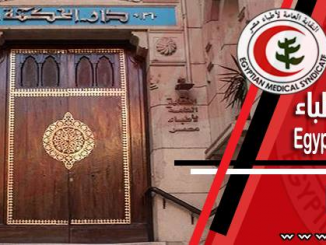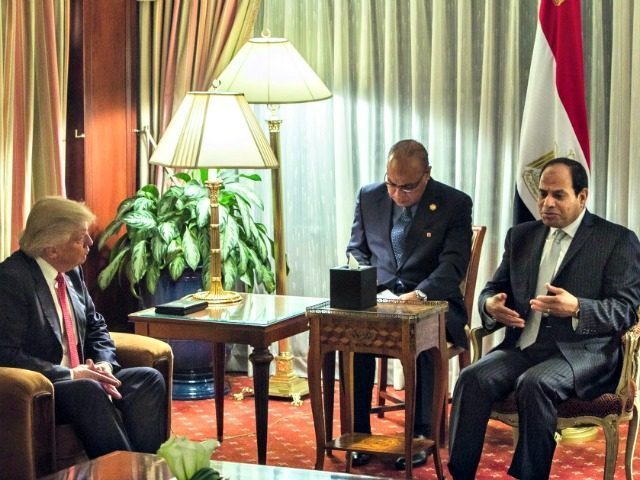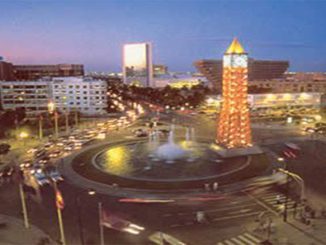
In a meeting with the regime’s National Council for Human Rights, representatives from some political parties have called on the government to release political prisoners, reform pretrial detention practices, and protect rights to free speech and assembly
The Egyptian government’s National Council for Human Rights (NCHR) on 20 March held a meeting with the representatives of several political parties, all of whom operate in a highly restrictive political environment with no room for substantive opposition to President Abdel Fattah al-Sisi.
The meeting reportedly included participation from a handful of parties including the Popular Alliance, the Egyptian Democratic party, the Dostour (Constitution) party, and the Conservative party.
According to Medhat al-Zahid, head of the Popular Alliance party, attendees called on the council to focus on the release of prisoners of conscience—of which Egypt has approximately 60,000—and urged the council to amend the maximum period of legal pretrial detention from two years to no more than six months.
The politicians proposed the use of electronic tagging devices and restrictions on movement as alternatives to pretrial detention, a measure abused by the Egyptian government to unjustly keep tens of thousands of individuals behind bars.
Representatives from various parties also called for increased media freedom, access to blocked news websites, amendments to the election law to allow a proportional list system, and a review of the right to organize and peacefully assemble in the country, rights that are severely curtailed by the al-Sisi government.
Egypt political detainees in jail with no end in sight
In a practice dubbed by the country’s legal and activist community as “recycling” or “rotation”, inmates can end up in detention indefinitely — even after a court has ordered their release.
Egyptian human rights activists have recurrently sounded alarm over the pretrial detention of political detainees
Twelve Egyptian activists have been on hunger strike since early February 2022 in protest of their prolonged pre-trial detention at Tora Prison Complex. Among them, Abdelrahman Tarek (Moka), Ahmed Maher (Rigo), Galal El Beheriy, and Walid Shawky started hunger strikes to protest their unlawful imprisonment. On 8 March, Walid Shawky ended his hunger strike.
Their health is at risk as their physical condition further deteriorates. The undersigned organisations call on the Egyptian authorities to immediately and unconditionally release the aforementioned individuals, as well as all of the many other individuals currently held in detention for peacefully exercising their right to free expression.
Ahmed Maher (Rigo) has been in pre-trial detention since May 2020 on charges of joining a terrorist group, publishing false news and misuse of social media. The court ordered his release under Case no. 586/2020 in October 2020, however, the State Security Prosecution ordered his detention over the same charges under another case, Case no. 885/2020.
Abdelrahman Tarek (Moka) served a three-year prison sentence followed by probation after participating in a protest against military trials for civilians in August 2013. He was arrested again in September 2019 on accusations of joining a terrorist group and has been in pre-trial detention since.
In March 2020, the court ordered his release and the replacement of his pre-trial detention with probation measures. However, in April 2020, he was rotated under a different case number with the same charges. In September 2020, the Criminal Court ordered his release, but this decision was never implemented. He was subsequently forcibly disappeared for more than 60 days and later reappeared. He was then charged under a third case with the same charges, Case no.1056/2020.
In late 2020, he began a 53-day hunger strike, also in protest of his prolonged detention without trial. He concluded the strike on 4 February 2021 due to his deteriorating health and pressure exerted by prison authorities.
Galal El Beheriy was arrested on 3 March 2018 and disappeared for a week before reappearing to charges of terrorist affiliation, disseminating false news, abusing social media networks, blasphemy, contempt of religion, and insulting the military.
He was subjected to torture and beating during his disappearance. On 31 July 2018, he was sentenced to three years in prison, including a fine of 10,000 L.E. for his poetry, on charges of insulting the military and spreading false news.
Security forces arrested Dr. Walid Shawky from his clinic in Cairo on 14 October 2018. Thereafter, he was forcibly disappeared for six days. Shawky later appeared at the State Security Prosecution and was accused of joining a terrorist group and publishing false news in Case no. 621/2018.
In August 2020, the Criminal Court released him under this case. However, the State Security Prosecution subsequently ordered Shawky’s detention over the same charges under another case, Case no. 880/2020.
The UN Working Group on Arbitrary Detention highlighted “a systemic problem with arbitrary detention in Egypt”, adding that “under certain circumstances, widespread or systematic imprisonment or other severe deprivation of liberty in violation of the rules of international law could constitute crimes against humanity.”
There are tens of thousands of individuals arbitrarily detained in Egypt including activists, political figures, journalists, students, lawyers, staff of civil society organizations, human rights defenders (HRD) including women human rights defenders (WHRD), family members of political opponents and human rights defenders whose place of residence is abroad, women social media influencers, as well as individuals voicing criticism to political, economic or social conditions. The following individuals are among those in arbitrary detention; some have been sentenced while the majority are in pre-trial detention.



